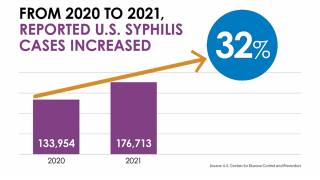HPV Vaccine Stopped Cancer Cold In Finland

A Finish research study is reporting that women who received a human papillomavirus vaccination 15 years ago have not developed HPV-related cancers.
Human papillomavirus (HPV) vaccine has been proven to be very efficacious in previous Finish research.
But, the real-life effectiveness of gender-neutral vaccination strategies was previously unknown.
This study's results of a community-randomized trial on the vaccine’s protective effectiveness in an HPV vaccination naïve population, suggests HPV vaccinations are effective at preventing HPV-related disease in both women and men, regardless of age.
These researchers concluded ‘while gender-neutral strategy enhanced the effectiveness of HPV vaccination for cross-protected HPV types with low to moderate coverage, high coverage in males appears to be key to providing a substantial public health benefit.
And a ‘herd’ benefit to unvaccinated females.
'In order to increase HPV vaccination rates, we must change the perception of the HPV vaccine from something that prevents a sexually transmitted disease to a vaccine that prevents cancer,' Electra Paskett, co-director of the Cancer Control Research Program at the Ohio State University Comprehensive Cancer, told Daily Mail Online.
This clinical study evaluated type-replacement by HPV type and vaccination strategy in a community-randomized trial executed in an HPV vaccination naïve population.
Thirty-three communities were randomized to gender-neutral vaccination with the AS04-adjuvanted HPV16/18 vaccine (Arm A), HPV vaccination of girls and hepatitis B-virus (HBV) vaccination of boys (Arm B), and gender-neutral HBV vaccination (Arm C).
The participants were 11,662 boys and 20,513 girls, who were vaccinated with 20-30% and 45-48% coverage, respectively. The ranked order of HPV types did not significantly differ between arms or birth cohorts.
Cervical cancer has become less common due to screening in Finland.
The rate of new cancers found annually has decreased to 20 percent of those reported during the 1960s.
At present, about 160 new cases of cervical cancer are diagnosed in Finland each year, and about 55 women die of cervical cancer annually, says the Finland Cancer Registry.
These researchers disclosed various potential conflicts of interest: Gray, P., Palmroth, J., Luostarinen, T., Apter, D., Dubin, G., Garnett, G., Eriksson, T., Natunen, K., Merikukka, M., Pimenoff, V., Söderlund-Strand, A., Vänskä, S., Paavonen, J., Pukkala, E., Dillner, J. and Lehtinen, M. Conflicts of interest D.A., J.D., G.G., M.L. and J.P. have received grants from Merck & Co. Inc. or the GSK group of companies through their employers [Family Federation Finland (DA), Karolinska Institute (J.D., M.L.), Universities of Tampere (M.L.) or Helsinki (J.P.) or Imperial College London (G.G.)] for HPV vaccination studies. G.D. is currently a full-time employee of Takeda Vaccines but was working for GSK Biologicals at the time the study was planned and conducted. He holds several patents in the HPV field which have been assigned to the GSK groups of companies and has stock shares in both the GSK groups of companies and Takeda
Evaluation of HPV type-replacement in unvaccinated and vaccinated adolescent females – Post-hoc analysis of a community-randomized clinical trial (II). Int. J. Cancer. Accepted Author Manuscript. doi:10.1002/ijc.31281
Our Trust Standards: Medical Advisory Committee
- Evaluation of HPV type-replacement in unvaccinated and vaccinated adolescent females – Post-hoc analysis of a community-randomiz
- HPV vaccine has stalled cancers in Finland: Study claims none of the women who got the shot 15 years ago have developed HPV-rela
- Effectiveness, Safety and Immunogenicity of GSK Biologicals' HPV Vaccine GSK580299 (Cervarix TM) Administered in Healthy Adolesc
- The Finnish Cancer Registry
- Human Papillomavirus and Related Diseases Report

























